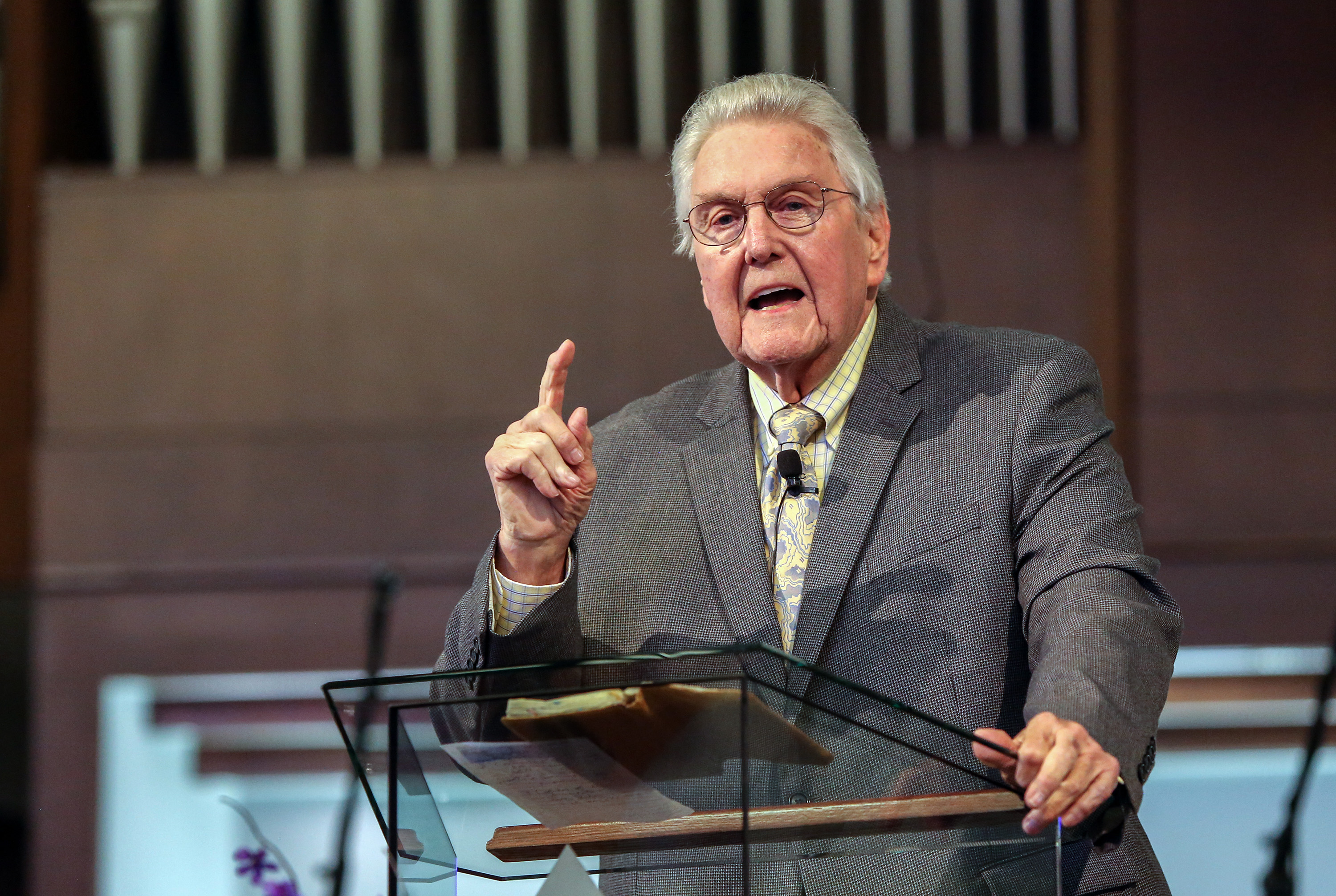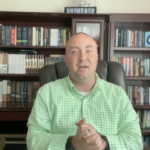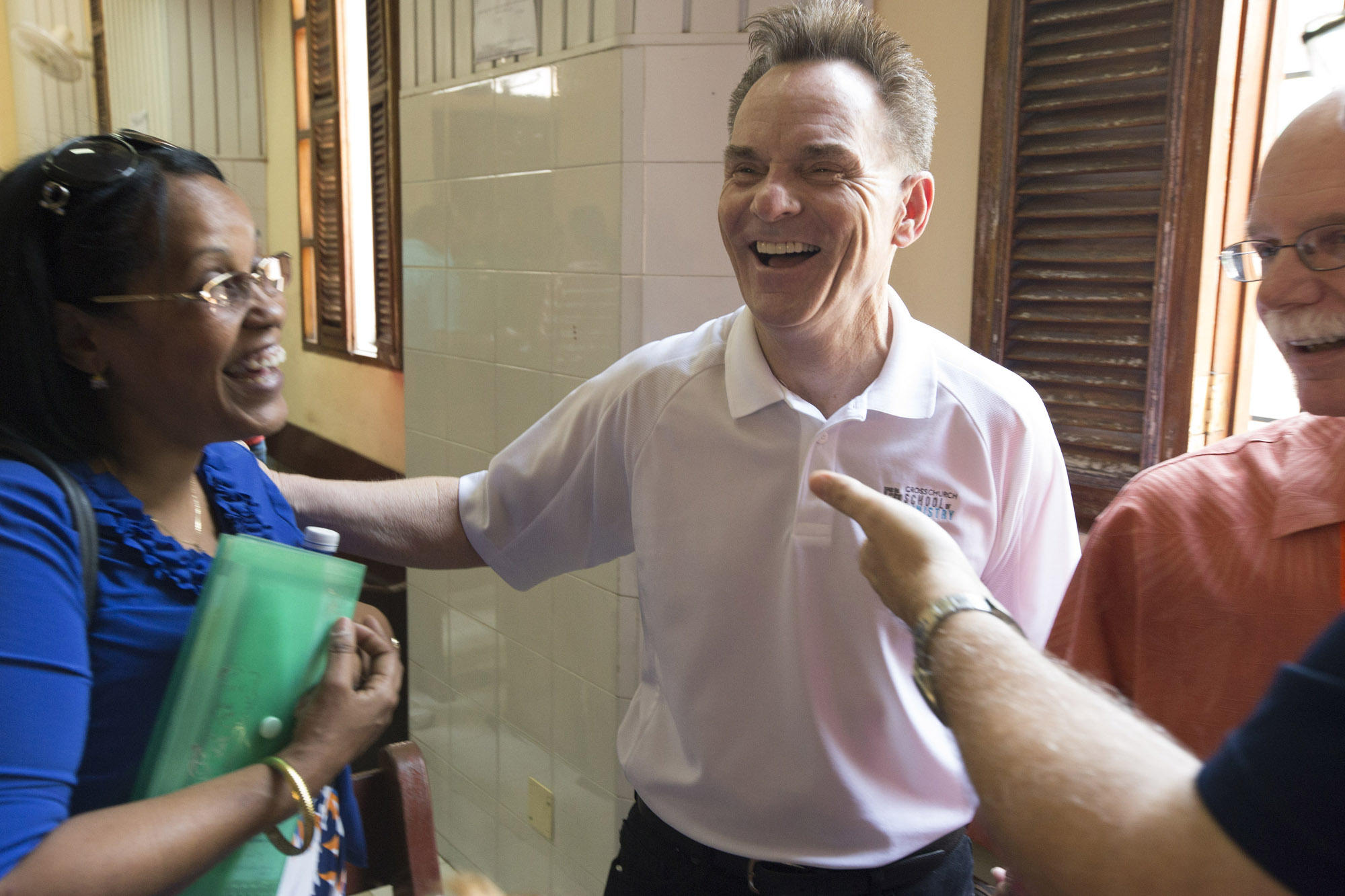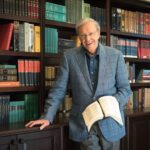
HARTSELLE, Ala. (BP) – Junior Hill, a beloved and in-demand evangelist among Southern Baptists for more than 50 years, died Jan. 3 at his home in Hartselle, Ala. He was 87.
Hill conducted more than 1,800 revivals – from Sunday-to-Sunday meetings for many years, adding “Harvest Days” in subsequent years – and was a sought-after speaker for pastors’ conferences, state conventions and evangelism meetings across the country. He also spoke in various camp meeting, seminary and college settings and engaged in numerous overseas campaigns.
In 1989, he was elected as the SBC’s first vice president at the convention’s annual meeting in Las Vegas. The first of his many messages at the Southern Baptist Pastors’ Conference was in 1981 in Los Angeles.
In his 2005 autobiography, “They Call Him Junior,” Hill noted that the “most delightful joy of life on the road is the overwhelming honor of seeing so many precious souls come to faith in Christ.”
Yet, he never tallied the number of professions of faith during his 68-plus years of ministry, writing, “Only the dear Lord in Heaven knows those facts and I am perfectly content to await His final report.”
Hill entered full-time evangelism in 1967, after 11 years in pastorates at two churches in Hartselle, one in rural Mississippi and one in Birmingham, Ala.
At the Alabama Baptist Pastors Conference in November 2021, Hill was honored with the inaugural Fred Wolfe Lifetime Pastoral Ministry Award, named for a longtime Mobile-area pastor and former president of the SBC Pastors’ Conference who had died from COVID-19 complications earlier in the year.
In 2010, the Alabama Baptist Pastors Conference first honored Hill, screening video clips by a number of Baptist leaders and giving him and his wife Carole a five-day trip to Asheville, N.C., where they would meet evangelist Billy Graham at his home in nearby Montreat.
“Junior has been a powerful, evangelistic voice to Southern Baptists in our lifetime,” Wolfe said. “No man has preached the Gospel more clearly and powerfully to saints and sinners than Junior Hill.”
Hill’s messages “go straight to the heart,” Wolfe said. “One moment he’ll have you laughing but it seems the next moment the Holy Spirit has come and you find yourself weeping.” Addressing Hill, Wolfe said, “Your humility, your Christ-like character, your faithfulness, your consistency has been a blessing to every one of us.”
Rick Lance, executive director of the Alabama Baptist State Board of Missions, said he first heard Hill preach in 1967. “You encouraged me then as a young teenage boy looking forward to being a minister of the Gospel. You gave me great counsel and [took] patient time with me,” Lance said in his video, calling Hill “a role model for all of us. You are our encourager. You’re not only our apostle Paul, but you’re our Barnabas.”
SBC meets Junior Hill
Hill’s rise to SBC-wide recognition began with his preaching at the 1980 Alabama Baptist Pastors Conference when he met Bailey Smith, who had been elected SBC president in June. Smith subsequently invited Hill to preach at his church in Del City, Okla., and at the Baptist General Convention of Oklahoma’s evangelism conference.
The invitation to the 1981 Southern Baptist Pastors’ Conference was extended by its president, Jim Henry, then-pastor of First Baptist Church in Orlando, Fla. – who had been one of Hill’s classmates at New Orleans Baptist Theological Seminary. Soon came invitations to preach to additional thousands at the Texas Baptist evangelism conference and First Baptist Church in Dallas followed in the mid-1980s by the annual evangelism conference of First Baptist Church in Jacksonville, Fla.
Introduced by W.A. Criswell to the Dallas congregation, Hill wrote, “I could hardly believe it. Here was a country preacher who had spent almost all of his ministry preaching in small rural churches in Alabama now speaking … for Southern Baptists’ most famous and beloved pastor.”
From the outset, Hill promised never to preach about money and never to solicit funding from any church member after a revival. Widely known as a “pastor to pastors,” that dimension of Hill’s ministry emerged from the trauma of being fired in 1962 as pastor of the Mississippi church he had led for 18 months while an NOBTS student.
Asked during a men’s Sunday School class whether Black visitors should be welcomed, Hill said all churches should be open to anyone regardless of race or color. He then noticed “a strange somberness in some of their faces.”
The church’s deacons voted mid-week to fire Hill, who didn’t learn about the action until returning the following Saturday.
“I can still remember how humiliating it was to walk past those laughing men, go back to the car, and sadly tell Carole what had happened to us,” Hill wrote in his autobiography.
Yet, “one of the sweetest and most far reaching of all the lessons God taught me … was the importance of loving His preachers,” Hill wrote, recounting that “after having my own heart so deeply crushed and broken, I immediately began to sympathize with other pastors who were going through similar dark valleys. … I wrote them letters, called them on the phone, and went out of my way to befriend and encourage them. … I sensed that they knew I loved them, understood how they felt, and that I was not talking down to them nor accusing them of failure.”
Joy, heartbreak & challenges
Even before his first sermon in April 1955, Hill had sensed a call to evangelism since coming to faith in Christ a year earlier. Nearly 19 years old and the youngest of five children, he set forth 18 points “with a pitiful absence of Biblical content,” as he described it.
Even so, his parents, William Lawton and Fannie Velma Hill, who had never talked about God in their home, responded to the invitation to turn to Christ, as did his older sister, Ruth.
One of his three older brothers, Tillman, was killed in World War II. Another brother, Leon, tragically stopped short of saving faith a few months later.
“He came to hear me preach one night,” Hill said in a 2018 sermon at the Memphis-area Bellevue Baptist Church. “I watched him when the invitation was given and I could see him crying. After the service was over, we sat down to talk and I said, ‘Leon … did God speak to your heart?’ ‘He sure did, and I felt like I needed to be saved.’ I said, ‘Well, Leon, you could be saved right now. Why don’t you and I just bow down on our knees. You can ask Jesus to save you. …’
“I never will forget what he said: ‘I can’t do that right now. My wife and I are having some marital problems. When I get them worked out, I’ll be saved.’ But what he didn’t know, and I didn’t know, was that less than two months later he’d be standing one warm November morning with a fishing pole in his hand, and just topple over in the water, dead.” Leon had a fatal heart attack at age 34.
“I don’t like to say what I’m about to say, I hope I’m wrong, but I fear that my brother is in hell,” Hill said. “You know why he’s there? Because the devil put it into his mind, ‘You can get saved later.’”
“I always try to make people think of the now,” Hill said in an interview with a north Alabama TV station in 2020. “Most every lost man – if he knows anything about the Bible – thinks he’s going to get saved. … But the tragedy is that so many of them wait too long. They die, have accidents. A lot of people think that’s a scare tactic but I don’t mean it to be. It’s just a reality check.”
Hill, whose given name was William Junior Hill, wrote 20 books largely of anecdotes and lessons from his ministry. After graduating from Samford University in Birmingham where he played two years of football, he earned a master of divinity degree from NOBTS in 1962, later receiving an honorary doctorate from Liberty University in Lynchburg, Va.
Hill calculated for his 2005 autobiography that he had been on the road for 20-plus years, accepting 40-42 engagements a year. He regularly returned home each week, and he called daily, sending the family’s phone bill soaring. His wife Carole never downplayed the challenges that she, their daughter Melanie and son Mark faced over the years, but once wrote to an aspiring evangelist, “… were it not for the hand of God constantly holding our right hand, we could not have made it. The blessings far outweigh any trouble, heartache and inconvenience we’ve encountered.”
In addition to his wife of 66 years and two children, Hill is survived by five grandchildren.
Funeral arrangements have not yet been made but will be handled by Peck Funeral Home in Hartselle, Ala.




















